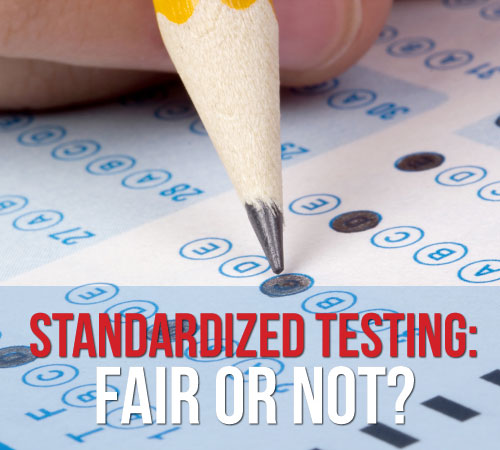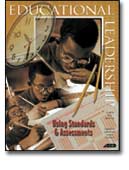Standardized tests don’t measure educational quality because they focus on memorization and regurgitation of information rather than critical thinking and problem-solving skills. These tests fail to capture the full range of a student’s abilities and overlook important aspects of learning, such as creativity and communication skills.
Moreover, standardized tests place undue pressure on students, leading to high levels of stress and anxiety, which can negatively impact their performance. The emphasis on test scores also narrows the curriculum, reducing the time and resources available for other meaningful learning experiences.
As a result, relying solely on standardized tests as a measure of educational quality fails to provide a comprehensive and accurate understanding of a student’s true abilities and potential.
The Limitations Of Standardized Testing
htmlStandardized testing, while commonly used to assess educational quality, has inherent limitations that may not accurately measure a student’s true capabilities and potential. The narrow focus on multiple-choice questions can lead to a limited evaluation of intelligence and skills. Other forms of intelligence, such as creativity, critical thinking, and problem-solving abilities, are not effectively captured by standardized tests.
Furthermore, standardized tests often disadvantage non-native English speakers. These tests primarily assess language proficiency along with subject knowledge, which can put non-native speakers at a disadvantage, even if they possess a deep understanding of the material.
| Limitations | Disadvantages for Non-Native English Speakers |
|---|---|
| The narrow focus on multiple-choice questions | Assess language proficiency, putting them at a disadvantage |
| Ignoring other forms of intelligence and skills | May not effectively capture their true capabilities |
It is important to recognize these limitations and explore alternative methods of assessment that provide a more comprehensive understanding of a student’s educational quality, including project-based evaluations, portfolios, and teacher evaluations.
Standardized Tests And The Pressure To Teach To The Test
Standardized Tests and the Pressure to Teach to the Test
The emphasis on rote memorization in standardized tests has become a major concern in measuring educational quality. Students are often taught to simply regurgitate information without truly understanding the concepts behind it. This approach neglects the development of critical thinking and problem-solving skills, which are essential for success in the real world.
Standardized tests also provide an inaccurate representation of true learning outcomes. They assess a limited range of knowledge and skills, often leaving out important areas such as creativity, interpersonal skills, and practical application of knowledge.
Standardized Tests And Educational Inequality
The use of standardized tests to measure educational quality has been heavily criticized for failing to provide an accurate representation of a student’s abilities and overall educational experience. Standardized tests perpetuate educational inequality by amplifying existing disparities in access to resources and test preparation.
Marginalized communities, such as low-income students and students of color, often have limited access to quality educational resources, including test preparation materials and tutoring. As a result, they are at a disadvantage when it comes to performing well on standardized tests. This further widens the gap between privileged and marginalized students, reinforcing existing disparities in educational opportunities.
Standardized tests also fail to take into account the diverse learning styles and individual strengths of students. They focus primarily on rote memorization and regurgitation of information, rather than promoting critical thinking, creativity, and problem-solving skills that are essential for success in the real world.
Moreover, the emphasis on standardized testing places undue pressure on students, teachers, and schools, leading to a narrow focus on test preparation at the expense of a well-rounded, holistic education. This can have detrimental effects on student motivation, engagement, and overall learning outcomes.
Assessing Real-world Application Of Knowledge
Standardized tests have been a long-standing method of assessing educational quality, but they have increasingly come under scrutiny for their limitations in measuring real-world application of knowledge. Project-based assessments offer an alternative approach to testing that can provide a more comprehensive evaluation of students’ abilities. These assessments allow students to demonstrate their understanding through presentations and portfolios showcasing their skills and knowledge in a tangible way. Furthermore, practical demonstrations enable students to apply what they have learned in authentic settings, preparing them for the challenges they may face in the real world. By focusing on the application of knowledge rather than regurgitation of facts, project-based assessments provide a more accurate reflection of a student’s educational quality.
Comprehensive Evaluations Of Multiple Skills
Comprehensive Evaluations of Multiple Skills
Standardized tests have long been used as a measure of educational quality. However, it is important to recognize their limitations. These tests often focus on rote memorization and regurgitation of information, neglecting the development of crucial skills and qualities in students. Incorporating creativity and innovation in evaluations can provide a more comprehensive understanding of a student’s capabilities. By encouraging students to think outside the box and come up with unique solutions, we foster their creativity and problem-solving abilities. Additionally, evaluating teamwork and collaboration skills can highlight the importance of working effectively with others. This cooperative mindset is crucial in today’s interconnected world. Furthermore, cultivating social and emotional development should be a key aspect of any evaluation system. Students need to develop empathy, emotional intelligence, and resilience to thrive in both their personal and professional lives. By adopting a more holistic approach to assessments, we can ensure that educational evaluations truly reflect the multifaceted abilities of our students.
Valuing Individual Growth And Progress
Standardized tests have long been the go-to method for measuring educational quality. However, it is becoming increasingly clear that these tests do not truly capture the essence of learning and growth. Valuing individual growth and progress is essential in fostering an educational system that meets the needs of every student.
One way to achieve this is through personalized assessments and feedback. By tailoring assessments to each student’s strengths, weaknesses, and unique learning style, educators can gain a comprehensive understanding of their progress. This approach recognizes and emphasizes diverse learning styles, ensuring that every student has an equal opportunity to thrive.
In addition, tailoring education to individual needs is crucial. Each student has their own set of circumstances, abilities, and aspirations, and a standardized approach simply cannot address these varying factors effectively. By adapting curriculum and instruction to meet the specific requirements of each student, we can provide a truly enriching educational experience.
Moving Towards A Holistic Approach To Evaluation
Recognizing the limitations of standardized tests: Standardized tests have long been used as a measure of educational quality, but they have certain limitations. These tests focus mainly on rote memorization and regurgitation of information, neglecting other essential skills and qualities that contribute to overall educational quality. By relying solely on standardized tests, we risk overlooking the unique abilities and potential of students that cannot be captured through a standardized assessment.
Embracing a multifaceted view of educational quality: Moving towards a holistic approach to evaluation allows us to consider a broader range of factors that contribute to educational quality. This includes assessing critical thinking skills, problem-solving abilities, creativity, and communication skills. By valuing these additional qualities, we create a more comprehensive and fair evaluation system that better reflects real-world requirements.
Fostering a love for learning and intellectual curiosity: Instead of focusing solely on test scores, we should strive to cultivate a love for learning and intellectual curiosity in students. Encouraging them to explore their interests and pursue independent research projects allows for a more meaningful and lifelong learning experience. This approach nurtures a growth mindset and prepares students for success in a rapidly changing world where adaptability and curiosity are highly valued.

Credit: www.ulethbridge.ca
Conclusion
Standardized tests are a widely used evaluation tool in education, but they fail to accurately measure educational quality. The emphasis on memorization and test-taking skills diminishes critical thinking and creativity. Moreover, these tests disproportionately disadvantage students from marginalized backgrounds. Educational quality should focus on holistic assessments, embracing diverse learning styles and nurturing individual talents.
By shifting away from standardized testing, we can prioritize a comprehensive education that fosters well-roundedness and prepares students for real-world success. Embracing alternative assessment methods will ensure a brighter future for our learners.







